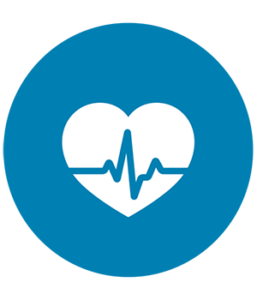Best Drug Addiction Treatment Centers of 2023
However, recovery can be thought of in 4 primary phases that include withdrawal, early, middle, and late phases of recovery. Psychologists specialize in the assessment, diagnosis, and treatment of mental health conditions, SUD, and addiction. They’re trained in a variety of evidence-based treatment methods designed to improve emotional and interpersonal well-being.
- In addition to one of these accreditations, treatment centers may also receive certification from their state health department.
- He also picked up my prescription — only a few days’ supply, which is another useful precaution.
Rosecrance accepts more than 25 types of insurance, including the major providers, as well as Medicaid, making treatment affordable for a wide range of individuals. Oxford Treatment Center has a partnership with the Mississippi State Department of Health, and has accreditation from both the Joint Commission and Commission on Accreditation of Rehabilitation Facilities (CARF). Its intensive outpatient program is 10 weeks long and emphasizes 12-step meetings and therapeutic treatment. It is for adults who have outside commitments and are unable to receive inpatient care.
Frequently Asked Questions Regarding Loved Ones with Substance Use Disorders
“There’s not a single right answer” about how to treat people in recovery with opioids, said Dr. Wakeman, who is also the senior medical director for substance use disorder at Mass General Brigham. Physicians often undertreat pain in people with addiction, but some also unfairly disregard fears about triggering craving, she said, adding that the best approach centers on the patient’s concerns. Alcohol treatment and recovery is a lifelong process that requires commitment and changes in many aspects of a person’s life. These four stages of treatment can help people with alcohol use disorders learn about the benefits of recovery, find the motivation to change their behavior, and learn new skills that will help them succeed in the long term. It may include clinical treatment, medications, faith-based approaches, peer support, family support, self-care, and other approaches.
If you are looking for an exclusive program or are hoping for specific accommodations and amenities, you may choose to go out of state for a particular facility. However, if it is determined that an outpatient program is the best way forward, choosing a treatment center close to home may eliminate a commute for visitation and make more frequent meetings and therapy sessions possible. Caron Pennsylvania has developed specific treatment programs divided by gender and age group, recognizing the biological and social differences in addiction. The Ranch Tennessee is located in Nunnelly, roughly an hour outside of Nashville.
Stages of Alcohol and Drug Rehab Recovery
With a 12,000-square-foot facility dedicated to outpatient care, Oxford Treatment Center has created separate spaces for medical, therapeutic, and community services. Freedom House Recovery Center is in-network with Blue Cross Blue Shield, Medicare, and Medicaid; however, no one is denied care based on inability to pay. Contact Freedom House Recovery Center at to inquire about programs and available space. Based in North Carolina, Freedom House Recovery Center never turns away individuals seeking treatment to recover from substance use. With locations in Chapel Hill, Durham, Norlina, Roxboro, and Warrenton, Freedom House receives grants and donations to offer care to anyone who needs it; in fact, donations are often made in memory of a loved one so others can receive treatment. Each person’s timeline for recovery varies based on their unique needs, substance use history, and life circumstances.

As a result, many of these state-funded rehab programs provide outpatient and medical maintenance services for those who are waiting for more intensive treatment. State-funded rehabs may be a good option for some of those who are left out of these figures. Once a person enters an inpatient rehab facility, they become a full-time resident of their chosen program and receive targeted care and support for 24 hours a day, seven days a week. They may live alone in an assigned room or board with a roommate, eat meals at their facility, and go to structured one-on-one or group therapy sessions several times per day. The average length of stay is 30 days, but depending on the situation, more time may be beneficial to long-term recovery and preventing relapse.
How Do I Know If I Need Inpatient or Outpatient Treatment?
Inpatient rehab programs and outpatient treatment programs provide a structured environment for recovery and provide the necessary tools to address how addiction affects various areas of a person’s life. Rehab programs for drug and alcohol treatment may be in the form of inpatient or outpatient care. People in inpatient programs often undergo long-term treatment for relapse drug addiction recovery prevention. However, the duration of a long-term rehab program will vary depending on the type of drug addiction requiring treatment. Next, we narrowed down categories for leading treatment centers that would help serve specific groups of individuals and eliminate barriers for attending drug addiction treatment centers (including age and/or lack of insurance).
It is still possible to pay for drug or alcohol treatment without private insurance through state-funded addiction treatment programs. Drug and alcohol treatment facilities across the country help people who do not have private insurance recover from substance abuse issues every day. Quite simply, state-funded detox programs, rehab centers, and other addiction providers are organizations and single entities that use government money, distributed by the state, to support people in recovery from addiction to alcohol or drugs.
Russian transport plane crashes near Ukraine with 65 Ukrainian POWs on board, Russian defence ministry says
Though the above program timelines are recommended, barriers such as finances, family needs, and employment often find their way to disrupt well-thought-out plans. It is common for individuals to attend treatment for days at a residential treatment program and then return home to continue their treatment in a local community intensive outpatient treatment program for an additional 45 days. This process allows for a 90-day treatment program but extends flexibility toward the end to provide relief for some of these barriers.
According to the Substance Abuse and Mental Health Services Administration (SAMHSA) publication, Integrating Substance Abuse Treatment and Vocational Services, the money that states use to fund these centers comes from various sources. Some is provided through SAMHSA in the form of federal grants and from reimbursement through Medicaid, and some comes directly from the state budget. In Florida, some bad-faith treatment facilities offer hope and promises of a quick recovery in the beautiful Sunshine State.


